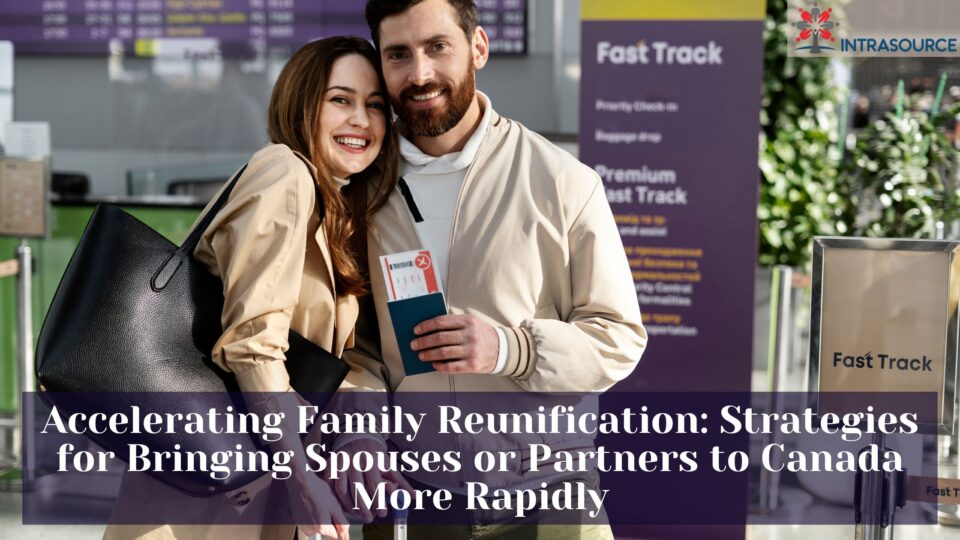Canada places a significant emphasis on family reunification as a core facet of its immigration policy. Amongst the various groups eligible for this priority treatment, spouses, common-law partners, and dependent children form the nucleus of these immigration efforts. Taking second place to economic immigration streams, family-class immigration pathways manifest Canada’s commitment to bringing loved ones together.
The 2023 Annual Report to Parliament on Immigration, released by Immigration, Refugees and Citizenship Canada (IRCC), reveals telling trends and statistics that affirm this commitment. Since 2018, there has been a consistent year-on-year increase in the admission of sponsored spouses, partners, and children. These numbers surged from 67,140 in 2018 to an impressive 70,076 by 2022 — a growth only temporarily stalled by the global COVID-19 pandemic.
Despite this upturn in reunification efforts, Canadian citizens and permanent residents (PRs) have faced longer waiting periods for the processing of their sponsorship applications. The timeline has stretched from an average of 13 months in 2019 to 18 months in recent years.
Service standards aim to anchor IRCC’s processing times within what is considered reasonable. However, these standards vary widely across different types of applications. For instance, Express Entry applications typically adhere to a six-month service standard, whereas family class sponsorship applications for permanent residence are often projected at a 12-month standard.
Lengthy separations can pose significant hardship; therefore, recognizing the importance of family presence in one’s life has prompted many Canadian citizens/PRs to seek out quicker avenues to reunite with their spouses or partners in Canada. In response to this need, IRCC provides two viable options that could potentially expedite the process — signaling hope for couples eager to start their lives together on Canadian soil sooner than they might have expected.
Eligibility for Spouses Open Work Permit
Individuals interested in obtaining a Spousal Open Work Permit (SOWP) in Canada must ensure they fulfill specific requirements, including:
- Establishing and evidencing a bona fide relationship with the sponsor.
- Being actively included in the permanent residence application process, confirmed through an Acknowledgement of Receipt (AOR) from the authorities.
- Residing within Canada alongside the sponsoring partner.
Standard Processing Timeframe
The Immigration, Refugees and Citizenship Canada (IRCC) aims to adhere to a standard service timeline of 60 days for issuing determinations on new work permit applications, including SOWPs.
Application Steps
While there are common procedures to follow when applying for any work permit, applicants for a SOWP may need to undergo additional steps that tailor to their unique circumstances.
For more comprehensive guidance on the open work permit application procedure, refer to our detailed information on this dedicated webpage.
Visitor Visa Eligibility and Application Process
Securing a Visitor Visa, commonly known as a Temporary Resident Visa (TRV), requires applicants to fulfill a set of standard prerequisites:
- Possession of a valid travel instrument such as a passport.
- Good health condition of the applicant.
- A clean legal record with no convictions related to crime or immigration matters.
- Evidence of strong connections to the applicant’s homeland, including employment, property ownership, monetary assets, or family ties that ensure return from Canada after the visit concludes.
- Adequate financial resources to cover the duration of stay in Canada. The requisite amount varies depending on the length and nature of the visit.
At present, Immigration, Refugees and Citizenship Canada (IRCC) endeavors to process fresh visitor visa applications received from overseas within 14 days.
- Proof of Relationship Document: Establishes the connection with the Canadian resident inviting them. Examples include marriage certificates or a notarized declaration of common-law status.
- Identity Document: A valid passport or another travel document used for entry into Canada should accompany the visa application.
- Family Information Document: All visa applicants aged 18 and over must complete this form as part of their application process.
- Use of a Representative Form: This is necessary when an application is made through an intermediary such as a family member or agent.
After obtaining a visitor visa, spouses/partners may apply for an open work permit upon their arrival in Canada. In an ideal scenario, it is possible for a sponsored spouse or partner to enter Canada and secure employment eligibility within roughly three months from visitor visa lodging. However, processing times can vary and sometimes exceed IRCC’s service targets.
Spouses Immigration Options: OWP and Visitor Visa Insights
When a Canadian citizen or permanent resident (PR) chooses to sponsor their spouse or partner for permanent residence, understanding the available immigration options is crucial. This pursuit involves not only the spousal sponsorship application but also interim measures like the Open Work Permit (OWP) and Visitor Visa.
Key points to consider:
- Timing is Essential: It’s important to note that options such as an OWP or a Visitor Visa are available only after the spousal sponsorship application has been submitted and acknowledged by Immigration, Refugees and Citizenship Canada (IRCC) with an Acknowledgement of Receipt (AOR). This assurance means that the application is under process.
- Expedited Visitor Visa Processing: Once you’ve received the AOR, pursuing a Visitor Visa may become more viable with potentially accelerated processing times. IRCC’s commitment benefits spouses seeking to stay together during the lengthy application process.
- Canada’s Family Reunification Promise: In May 2023, IRCC introduced initiatives aimed at strengthening family reconnections. Quick processing for eligible visitor visa applications is just one aspect of these broader measures. The intention behind such steps taken by the Canadian government resonates with its dedication to family restoration efforts.
- Temporary Public Policy for Open Work Permits: A now-expired policy once allowed certain eligible individuals to extend their OWPs—an effort by Canada to display flexibility and support towards those awaiting permanent residence through spousal sponsorship.
Remember that staying informed about policy changes, deadlines, and eligibility criteria can significantly impact your journey towards Canadian residency. Always consult with or verify information through official channels for accuracy and updates on immigration policies.


